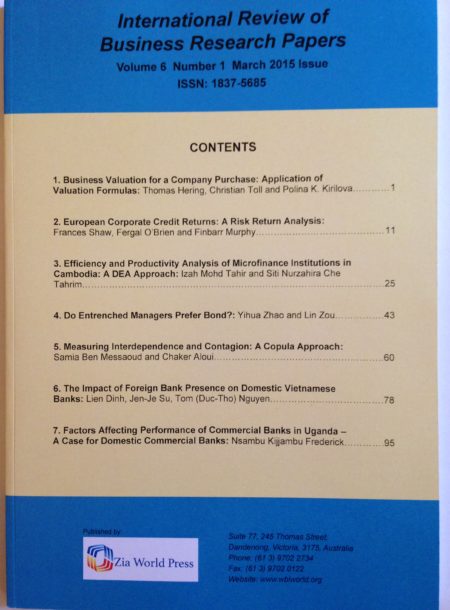Unethical Business Practices in Nigeria: Causes, Consequences and Control
Bello Ayuba and Ibrahim Ali Aliyu
This study examines the causes, consequences and control strategies of unethical business practices in Nigeria. The main objective is to investigate unethical business practices and its implications on the Nigerian society. The study employed both primary and secondary sources of data which were analysed using descriptive statistics, regression analysis and t-test to analyse the formulated hypotheses in line with the objectives of the study. A sample of 1,124 respondents representing 94% of the population (1,192) was used for analysis in the study. The study found that most customers’ complaints on ethical abuses were common in the mobile telecommunication, health, manufacturing and automobile sub-sectors where unethical business practices were caused by a combination of three broad factors namely; external factors, personal characteristics and improper control which include, greed, poor compliance with the legal requirements for doing business in Nigeria, aggressive competition, insufficient legislative enforcement and lack of effective supervision by the business regulatory bodies. The study also found unwholesome activities such as the proliferation of fake and substandard materials, misleading advertising, price collusion, discriminatory pricing and hoarding, diversion, overbilling, petroleum products black racketeering and poor service to disadvantaged consumers as among the factors with major consequences. Some recommendations were made among which are the need for adequate laws with stiffer penalties against violation of business ethics so as to help in ridding the society of all forms of unethical conduct in business. The study concludes that; with effective supervision by business regulatory agencies, stiffer penalties and strict compliance with legal requirements for doing business in Nigeria, the spate of unethical business practices characterizing the Nigerian environment will be eradicated or reduced to the barest minimum which will subsequently, result in economic growth and development of the country.
DOI :
https://doi.org/10.21102/irbrp.2018.09.142.01

